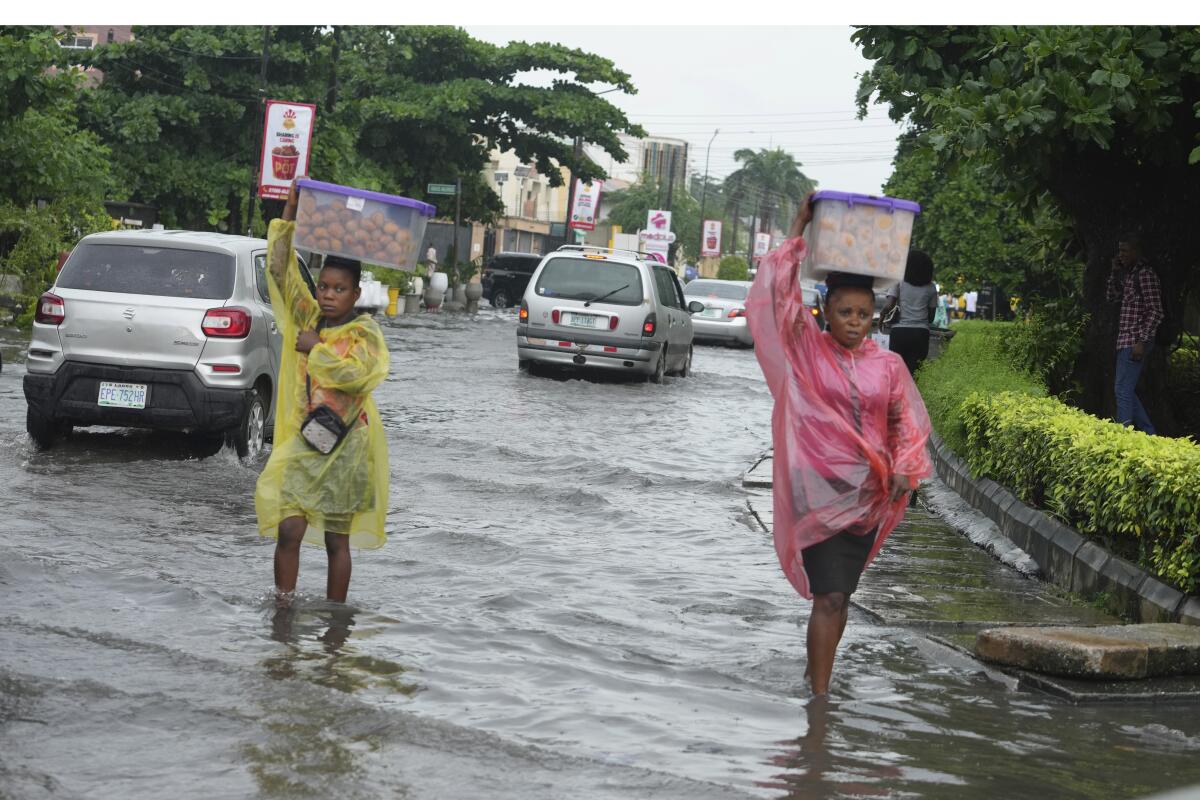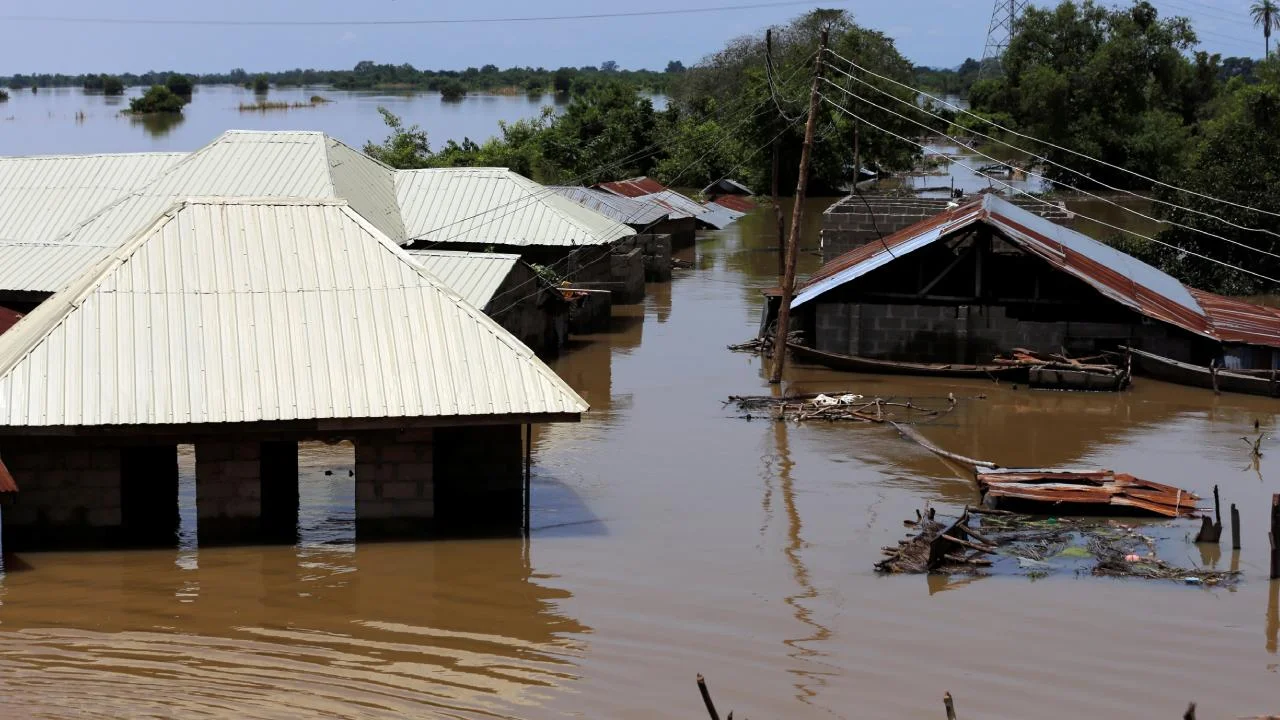Lagos is under attack every rainy season. Not through sickness or conflict, but through water. Daily life is brought to a bothersome standstill as streets become rivers and houses become ponds.
Urban flooding is a regular nightmare for those who live in Nigeria’s business centre, one with both physical and economic costs. Beyond the flooded streets and congestion, however, there are more serious expenses, including health hazards, displacement, income loss, and increasing hopelessness among the population.
Although Lagos has long experienced flooding, its frequency and severity have gotten worse recently. Once a minor annoyance, what was once a regular catastrophe now highlights decades of inadequate government inaction, environmental neglect, and poor urban design.
Every year, the rains come with fury, and with them comes disorder. Among the worst affected are neighbourhoods including Ajegunle, Lekki, Surulere, and Ikorodu. Low-lying homes are flooded, roads are washed away, and little enterprises are left tallying their losses in low-lying locations. Cars glide along roads like ships, and workers wade through knee-deep water only to reach home.
For those who live in disorganised neighbourhoods or unofficial settlements, the harm is frequently worse. Many people have constructed residences on wetlands and natural streams; others lack good drainage networks. Consequently, water has nowhere to go when the rains come.
Though frequently undervalued, the monetary expense of flooding in Lagos is rather high. Inventory is lost by small business owners, who are therefore forced to shut down for days or possibly weeks. Travel gets pricier. Schools closed their doors. Employees are cut off and forfeit important days, or even hours, of work. Most affected are casual workers who depend on daily wages.
The Lagos State Emergency Management Agency (LASEMA) projected in 2023 that statewide flood-related losses totalled over 100 billion naira. Beyond these statistics, though, are quiet stories of financial suffering, families moving to overtaxed shelters, people forced to repair their houses with money they lack, and children quitting school because of displacement.

![]() Flooding also increases the likelihood of major public health concerns. Mosquitoes thrive in soggy places, therefore promoting the spread of malaria. Contaminated floodwaters raise the likelihood of skin infections, cholera, and typhus.
Flooding also increases the likelihood of major public health concerns. Mosquitoes thrive in soggy places, therefore promoting the spread of malaria. Contaminated floodwaters raise the likelihood of skin infections, cholera, and typhus.
Open drains in some places combine with garbage and sewage to form a toxic concoction that seeps into houses and stores.
The causes pile one on top of another.
A big cause is overpopulation. Lagos has over 20 million people and is still growing. Uncontrolled rapid urbanisation has caused floodplains, wetlands, and drainage routes to be destroyed. Roads are built without adequate drainage planning; buildings are built on water channels.
Compounding the issue is bad waste management. Lagos produces more than 13,000 tonnes of garbage every day, and a lot of it clogs drains. Plastic bottles, food wrappers, and garbage soon clog even brand-new gutters, therefore impeding the easy flow of water.
Also adding to the problem is climate change. Unpredictable rainfall is now a standard occurrence of the wet season. Particularly susceptible is Lagos, a coastal city just above sea level.
Dealing with the underlying reasons for flooding and cooperating can help Lagos to lessen the effects of this yearly catastrophe and build a more robust future for its people.
Although the advantages will be worth it, this calls for a continuous effort from the government, locals, and stakeholders.
A flood-resistant Lagos will be better able to sustain its expanding population and spur economic development, therefore enhancing the living conditions for all of its inhabitants.
This article was written by Jessica Olayiwola


 Trending
Trending 
